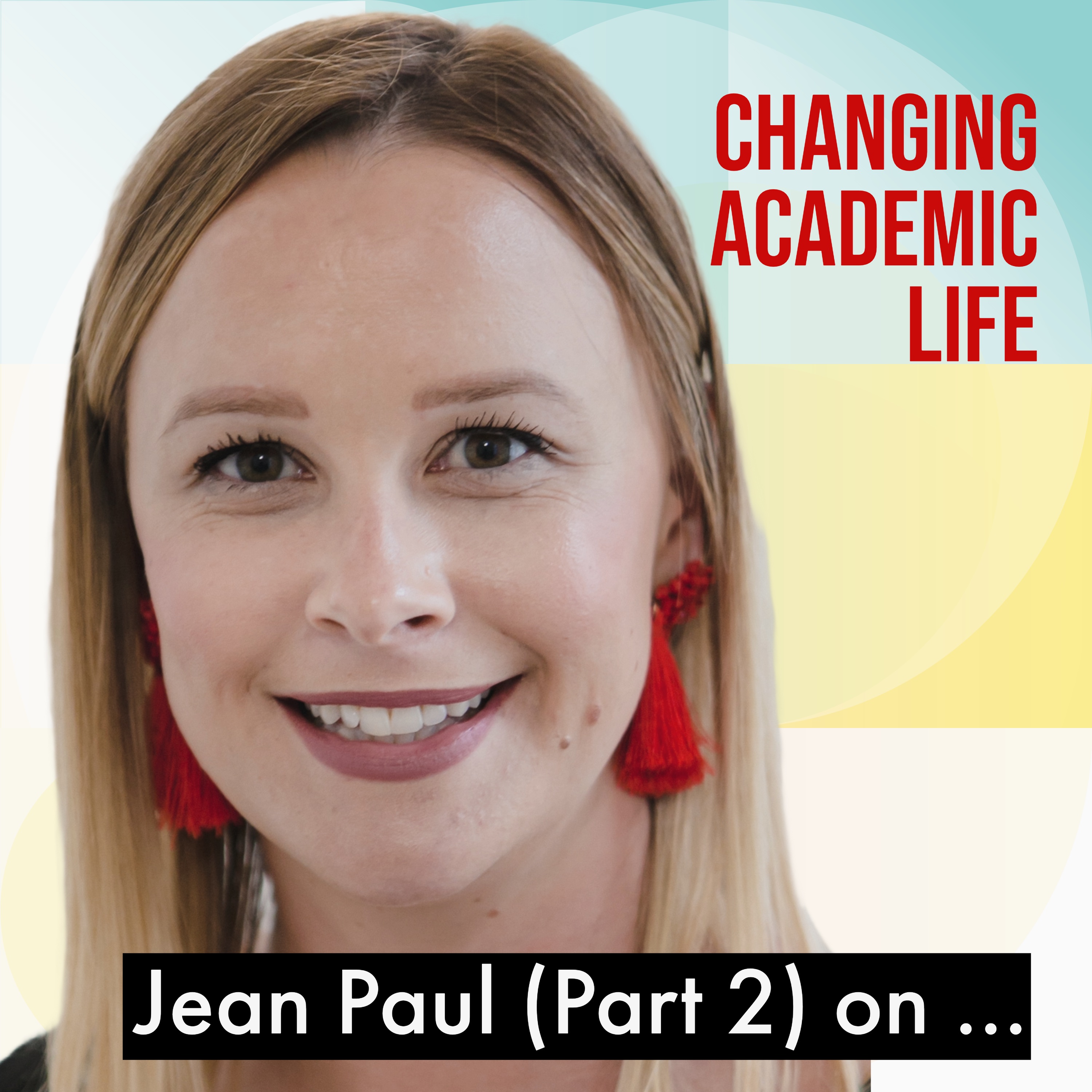Mar 27 2024 41 mins 8
Jean Paul is a senior scientist at the Medical University of Innsbruck. In part 2 of our conversation, Jean discusses her experience leading an impact-led transcdisciplinary research project focused on supporting families with mental health issues. She highlights the challenges of stakeholder engagement, distributed team management, and transdisciplinary research. Jean emphasizes the importance of community engagement, virtual team collaboration, and fostering diversity in academia. She also reflects on the skills she brings to this role and the importance of investing in the team set up from the very beginning.
Overview
[00:29] Introducing Part 2
[02:23] Recap from Part 1
[07:27] Working with stakeholders
[13:35] Leading a distributed international interdisciplinay project team
[14:59] Learning leadership from diverse experiences
[18:25] The transferrable skills – listening and learning
[20:04] Supporting diverse career paths
[25:16] Insights for parents in academia
[29:22] Leadership, organisational design and virtual team management
[34:33] Making virtual collaboration work
[39:08] Future directions and reflections
[41:57] End
Related links:
Ludwig Boltzmann Institute/Gesellschaft
The sandpit-funded project – The Village Project
The Healthy Minds project
Dr Ghislaine Caulat – consultant on virtual leadership development
Simon Martin – consultant for their organisational design in a transdisciplinary project with stakeholder involvement
Project Design principles:
The design principles that came out of the oganisational design workshops:
- Effectively coordinate and involve a wide (but manageable!) network of stakeholders
- Be clear on expectations, results and deliverables within the team
- Keep momentum, trust and energy going across the project timeline for the core team and wider stakeholders
- Make sure that the perspectives of people with lived experience are heard clearly throughout the project (capturing the voices of people impacted by perinatal mental illness and those who are treating and working with the affected person and their families)
- Enact high ethical standards in our research (especially when listening to personal stories of mental illness and challenges)
- Demonstrate the value of interdisciplinary research partnerships with stakeholders, and challenge the landscape of traditional research and methods
- Effectively lobby and influence (local and national policy makers), and raise awareness in society / politics through making our topics and results visible.
This podcast uses the following third-party services for analysis:
Chartable - https://chartable.com/privacy
